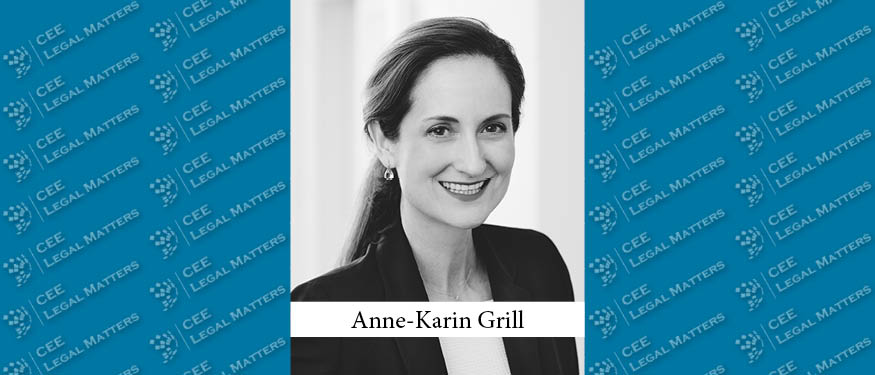European Commercial Courts are positioning themselves as alternatives to other national courts as they remain closely tied to domestic court systems.
Recognizing that English is the dominant language for cross-border contracts, several European jurisdictions now recognize English as an official language in court. By offering legal frameworks aligned with the linguistic and procedural needs of international businesses, these jurisdictions have enhanced their competitiveness and positioned themselves as key players in cross-border litigation.
English-Language Commercial Courts in Europe
France was one of the first countries to recognize the need for English-friendly commercial courts, launching the International Chamber of the Paris Commercial Court and the International Chamber of the Paris Court of Appeal (CICAP) in 2018. These courts handle complex international disputes, allowing document submissions and witness testimony in English and sworn translations for final judgments issued in French. Following France’s lead, the Netherlands established the Netherlands Commercial Court (NCC) in 2019. Unlike the French model, the NCC conducts entire proceedings in English, including filings, hearings, and judgments. However, participation requires both parties’ explicit written agreement, and court fees are significantly higher than those in standard Dutch courts, raising concerns about accessibility.
Germany has lately followed the trend with the 2024 Justizstandort-Staerkungsgesetz, a law allowing the German Federal States to introduce English language court proceedings as of January 2025. Newly- established specialized courts will operate within higher regional and select regional courts, addressing concerns over procedural inefficiencies, inconsistent rulings, and rigid contractual interpretations, even offering confidential proceedings to safeguard business interests.
Enforcement
One of arbitration’s key advantages over litigation is the quasi-universal enforceability of awards under the New York Convention, making it a preferred option for international businesses. In contrast, European courts rely on the Recast Brussels Regulation for enforcement within the EU, the Lugano and Hague Conventions for additional jurisdictions, and reciprocity agreements in all other cross-border constellations. The Hague Judgments Convention, as it gains broader adoption, may help bridge the enforcement gap by facilitating the recognition of foreign court judgments worldwide – with language playing a facilitative role.
English-Language Courts in Austria
Austria’s judicial system currently requires all procedural documents to be in German. This not only increases costs but also introduces potential issues in legal interpretation, as judges rely on translations rather than assessing contract wording and party intent directly.
Introducing English as an official language in court would enhance efficiency, eliminate interpretation biases, and strengthen the principle of immediacy in judicial proceedings. Beyond translation challenges, the current schedule of court fees impacts international commercial litigation. With first-instance court fees amounting to a baseline of 1.2% of any amount in dispute exceeding EUR 350,000, Austria is less competitive than jurisdictions with lower procedural costs. Additionally, the rather unorthodox statutory requirement under Austrian law to pay levies on settlements makes negotiated/mediated solutions more expensive and thus less attractive. Recognizing these challenges, the President of the Commercial Court of Vienna and other prominent advocates have proposed the introduction of English as an official language in court. A draft law submitted to the Austrian Ministry of Justice outlines a phased implementation, starting with a pilot project before expanding to all three instances of Austria’s judicial system. The pilot project envisions establishing three English-language departments at the Commercial Court of Vienna, maintaining the same high standards of independence, efficiency, and judicial competence.
The initiative signifies a pivotal step toward modernizing Austria’s judiciary by eliminating costly translation requirements. The Commercial Court of Vienna has both the legal and human resources to implement English-language departments, making it the ideal starting point. Conducting proceedings in English would further enhance Austria’s position as a neutral, efficient, and globally accessible dispute resolution forum, enhancing its appeal also for international litigation. Furthermore, Austria has a strategic opportunity to compete with other European jurisdictions that have already introduced English as an official language in court. Countries like France, the Netherlands, and Germany have recognized the benefits of accommodating English-speaking litigants, increasing their appeal as global litigation hubs. As these courts offer attractive frameworks for challenging and enforcing English-language arbitral awards, without a similar reform, Austria risks falling behind, losing potential cases to neighboring countries with more accommodating judicial systems.
To position itself as a prime location for international commercial litigation with evident synergies benefitting its already prominent stance as an arbitration venue, Austria must implement key reforms. Very encouragingly, the draft working program of the incoming Austrian government specifically lists as a judicial policy goal “the strengthening of commercial litigation by international comparison, inter alia via the assessment of the use of the English language in court proceedings.”
By Anne-Karin Grill, Founder and Principal, and Stefani Funke Rodriguez and Ljubica Mitic, Paralegals, AKG Advisory
This article was originally published in Issue 12.2 of the CEE Legal Matters Magazine. If you would like to receive a hard copy of the magazine, you can subscribe here.
















